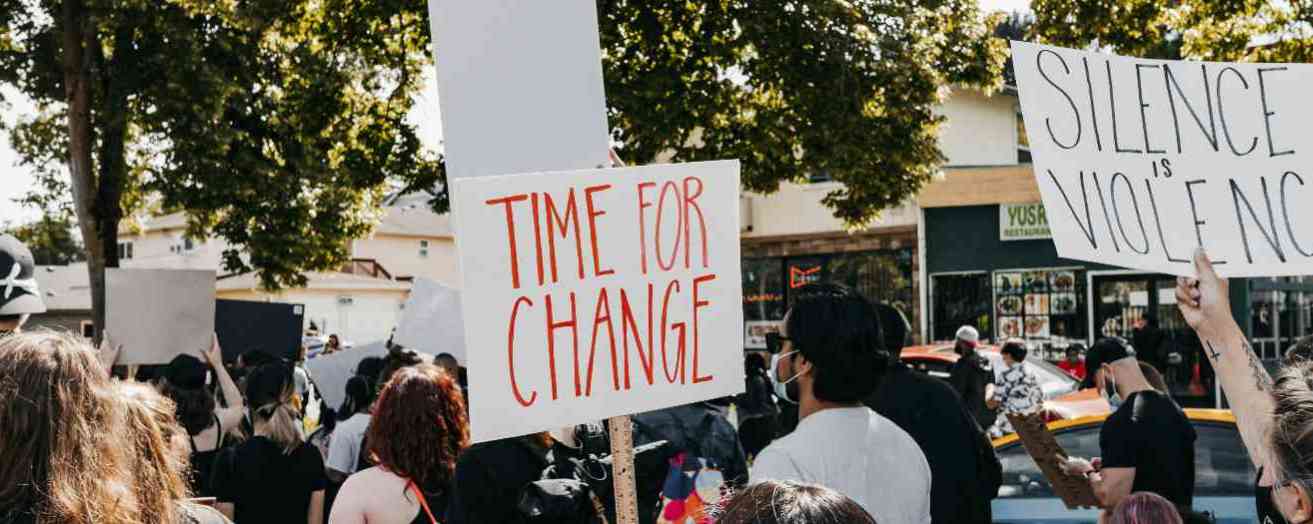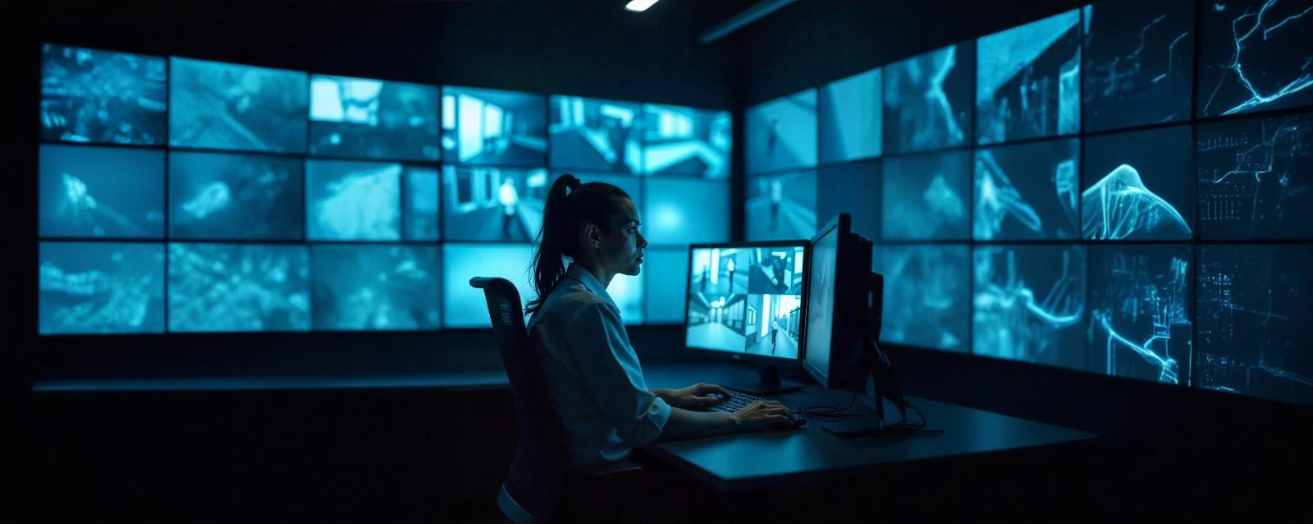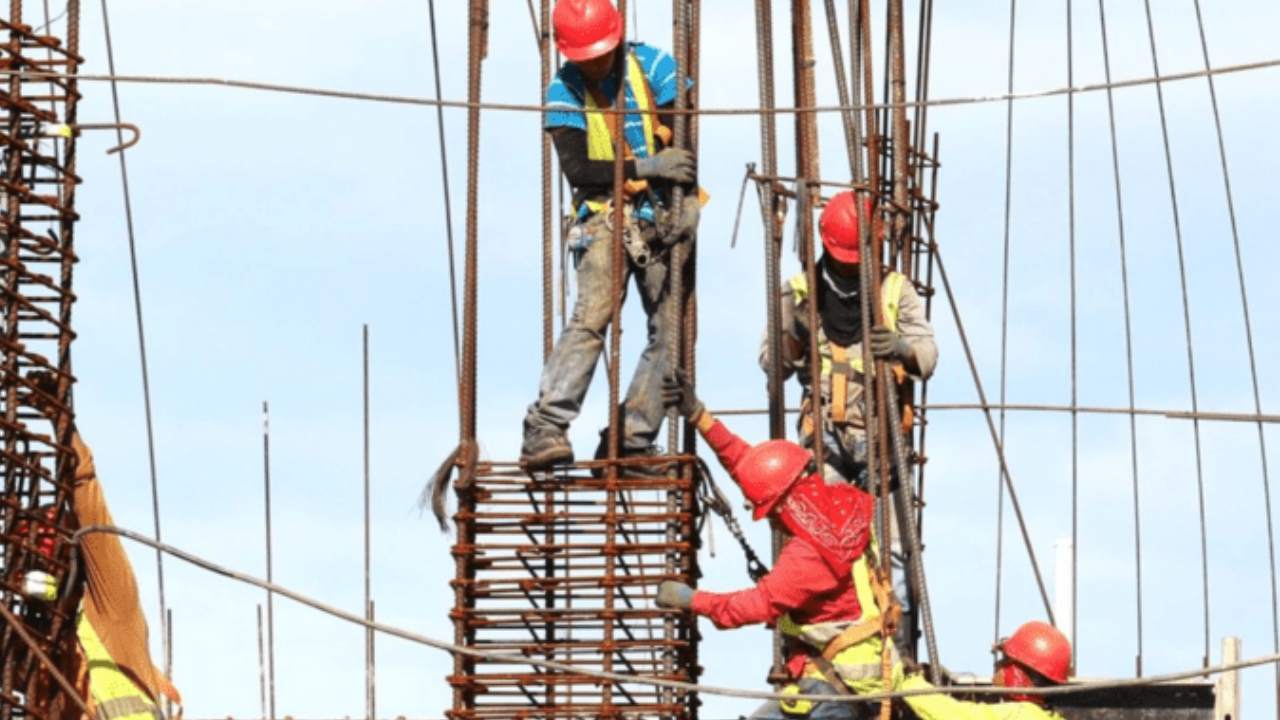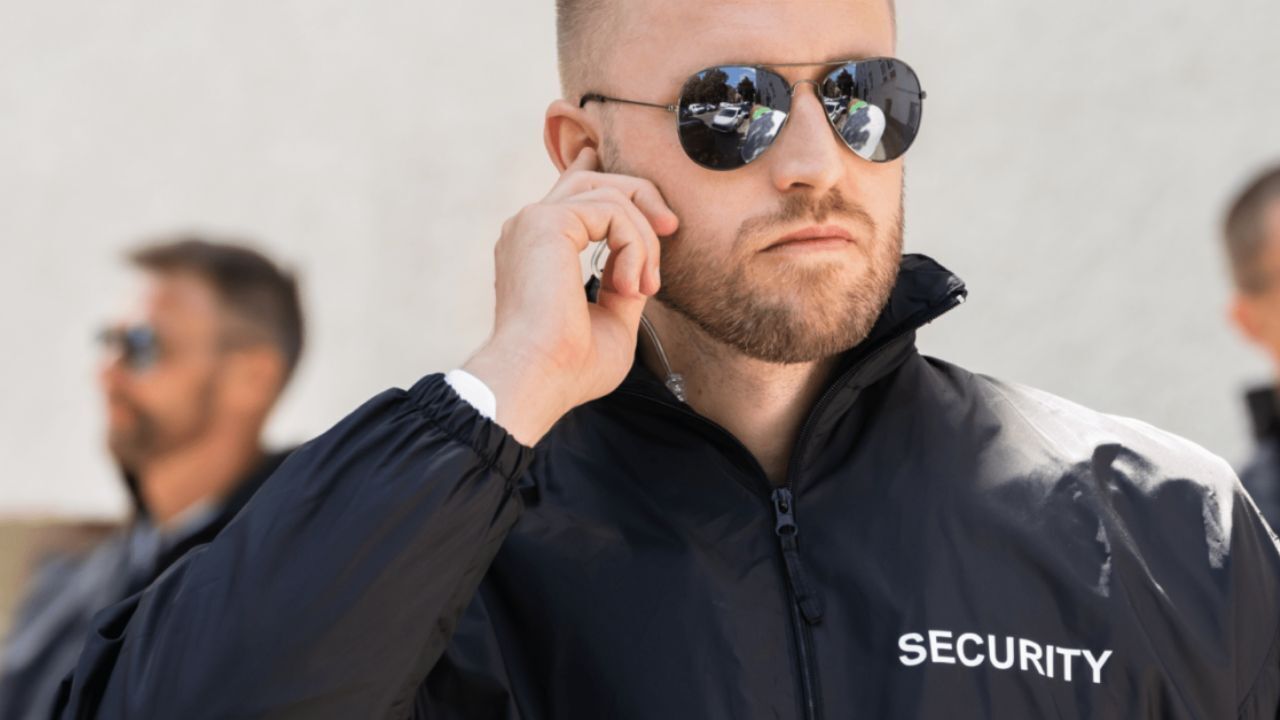The streets of Britain have witnessed an unprecedented surge in public demonstrations over the past year, with Palestine solidarity marches drawing tens of thousands of participants across major cities. For security officers working in retail centres, corporate buildings, and public venues, these UK protests present a unique professional challenge that goes far beyond routine crowd management.
As a security professional, you might find yourself watching a passionate demonstration unfold outside your workplace, feeling a personal connection to the cause or perhaps disagreeing with the protesters’ message. That’s entirely human. But here’s the crucial point: your personal views must never influence your professional conduct. Your role isn’t to judge, support, or oppose any political movement—it’s to ensure everyone’s safety while maintaining the highest standards of professional conduct.
The Security Industry Authority (SIA) has made this crystal clear in their Code of Conduct, which explicitly states that licence holders must “act with honesty and integrity” and not discriminate unlawfully against any person.
Understanding Your Role During UK Protests
When protests in the UK unfold near your workplace, your responsibilities remain fundamentally unchanged: safeguarding people and property, observing potential risks, and reporting incidents accurately. The SIA’s guidance on professional standards emphasises that security officers must remain impartial in all situations, particularly those involving political or social issues.
Your primary duties include maintaining a visible security presence, monitoring access points, documenting incidents, and serving as a reliable contact for emergency services if needed. You’re not there to police the protest itself—that’s law enforcement’s responsibility.
Consider this scenario: Palestine solidarity protesters gather outside your shopping centre. Some shoppers express frustration about the disruption, while others show support. Your job isn’t to mediate these political disagreements or share your views. Instead, focus on ensuring entrances remain accessible, that no one is being harassed, and that your employer’s property remains secure.
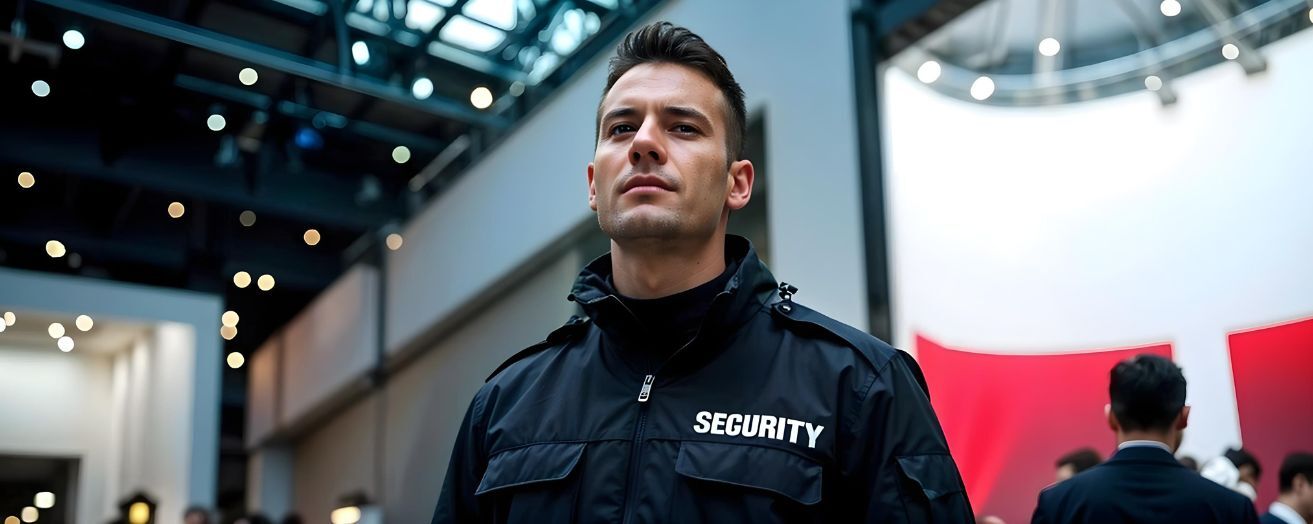
Why Emotional Detachment Matters
Maintaining emotional detachment during politically charged protests in the UK is challenging but essential. Personal views can cloud professional judgment in dangerous ways. An officer who sympathises with protesters might be less vigilant about security risks, while one who opposes their cause might be overly aggressive in enforcing rules.
The ethical obligation to remain neutral isn’t just about following rules—it’s about respecting the fundamental rights of all people, regardless of their political views. In a democratic society, peaceful protest is a protected right, and security professionals have a responsibility to ensure that this right can be exercised safely.
Professional detachment protects you from becoming a target of criticism from either side of contentious issues. When you maintain clear neutrality, you’re less likely to be drawn into confrontations beyond your control or training.
What You Should (and Shouldn’t) Do
Professional conduct during protests requires clear boundaries and consistent application of your training. Understanding these guidelines helps you navigate challenging situations while maintaining professional standards.
What To Do
- Stay Calm and Observant
Maintain composure regardless of demonstration intensity. Document everything relevant to your security responsibilities—time, participant numbers, disruptions to operations, and safety concerns.
- Follow Emergency Protocols
Know your workplace’s procedures for handling demonstrations. Familiarise yourself with these protocols before you need them.
- Document Incidents Thoroughly
Record facts, not opinions. Instead of “aggressive protesters causing trouble,” write “protesters using megaphones caused some customers to use alternative entrances.”
- Maintain Professional Communication
When speaking with colleagues or the public, use neutral language focused on operational impacts rather than political commentary.

What Not To Do
- Engage in Political Debates
Resist sharing your views or engaging in discussions about the protest’s merits. Responses like “I’m here to ensure everyone’s safety” redirect conversations without causing offence.
- Share Personal Views on Social Media
Posting opinions about UK protests you’ve witnessed can undermine your professional credibility and potentially violate employer policies.
- Intervene Without Clear Justification
Your authority is limited to your assigned premises and specific safety circumstances. You cannot move protesters from public areas or prevent them from exercising legal demonstration rights.
- Make Assumptions About Protesters’ Intentions
Base security assessments on actual behaviour and observable actions, not on stereotypes or personal prejudices.
How SIA Training Prepares You For Unexpected Circumstances
Your SIA training contains valuable modules directly applicable to protest situations. SIA security courses, such as the door supervisor training, include a conflict management component which teaches de-escalation techniques invaluable during UK protests. These help you manage tensions between protesters and the public while maintaining calm when emotions run high.
Counter-terrorism awareness training helps you identify genuinely concerning behaviours versus passionate but lawful demonstrations. However, apply this knowledge proportionally—peaceful demonstrators aren’t security threats simply because they advocate controversial causes.
Professional standards modules emphasise impartiality, integrity, and respect for others’ rights. These principles become especially important during protests where personal views might influence professional conduct.
Responding to Escalations
Contact police immediately if you observe actual violence, credible threats, significant property damage, or protesters attempting forced entry. However, avoid calling the police simply because demonstrations are loud or advocate causes you disagree with.
Physical intervention should be your last resort and only with clear legal justification. You may use reasonable force to protect yourself or others from immediate harm, prevent serious property damage, or detain someone who’s committed an indictable offence on your premises.
Act Like Your Professional Future Depends On It – Because It Does
Working as a security officer during heightened political activity requires professional maturity beyond routine duties. The ability to separate personal convictions from professional responsibilities isn’t just a job requirement—it’s a mark of true professionalism serving the broader public interest.
The current wave of protests in the UK, like other social movements before them, will eventually subside. But the professional standards you maintain during these challenging times will define your reputation and career prospects long after the headlines fade.
Remember that your duty as a security officer is to protect all members of the public, regardless of their political views and your personal biases. When you put duty before opinion, you’re not just doing your job; you’re contributing to a society where everyone’s rights and safety are respected.
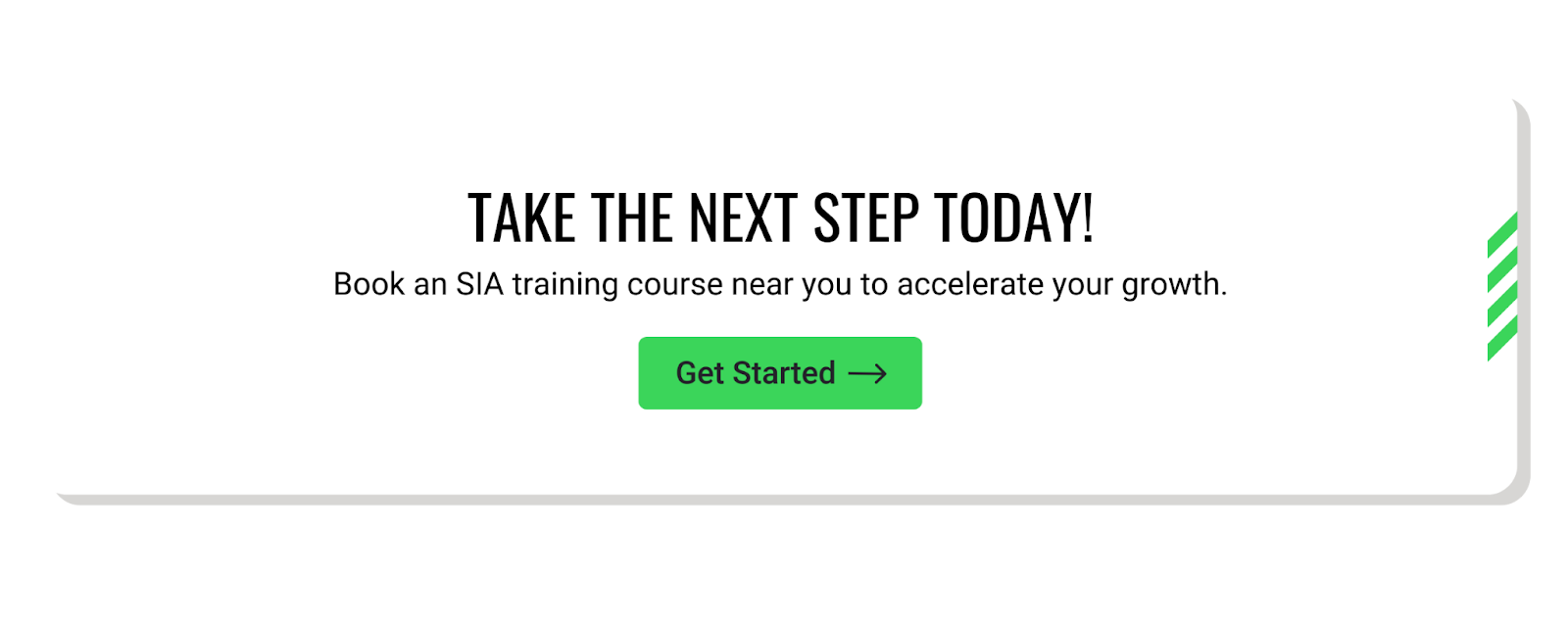
Ready to Enhance Your Security Guarding Skills?
Handling protest situations professionally requires up-to-date training. At Get Licensed, we provide comprehensive SIA training courses, including door supervisor and security guard training, that prepare you for real-world challenges, including managing difficult situations while maintaining professional standards. We also offer e-learning courses to help you build essential skills for diffusing tough situations, like conflict management and behavioural detection.
Book your SIA training today and join thousands of security professionals who trust Get Licensed for their career development.





